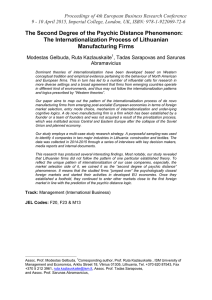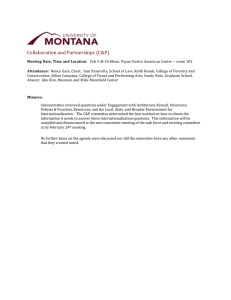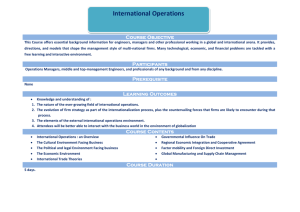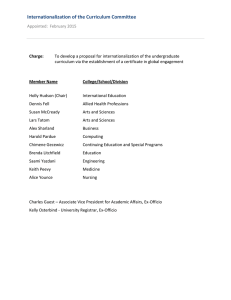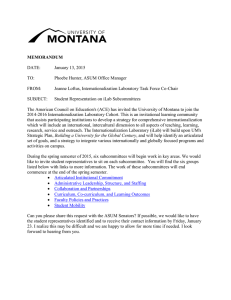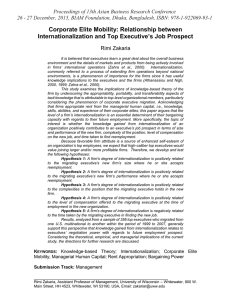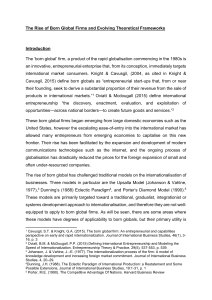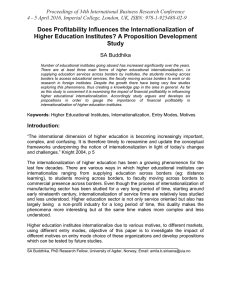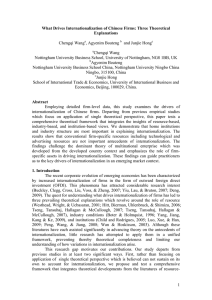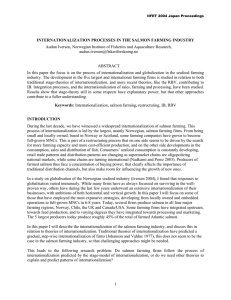Proceedings of 30th International Business Research Conference
advertisement
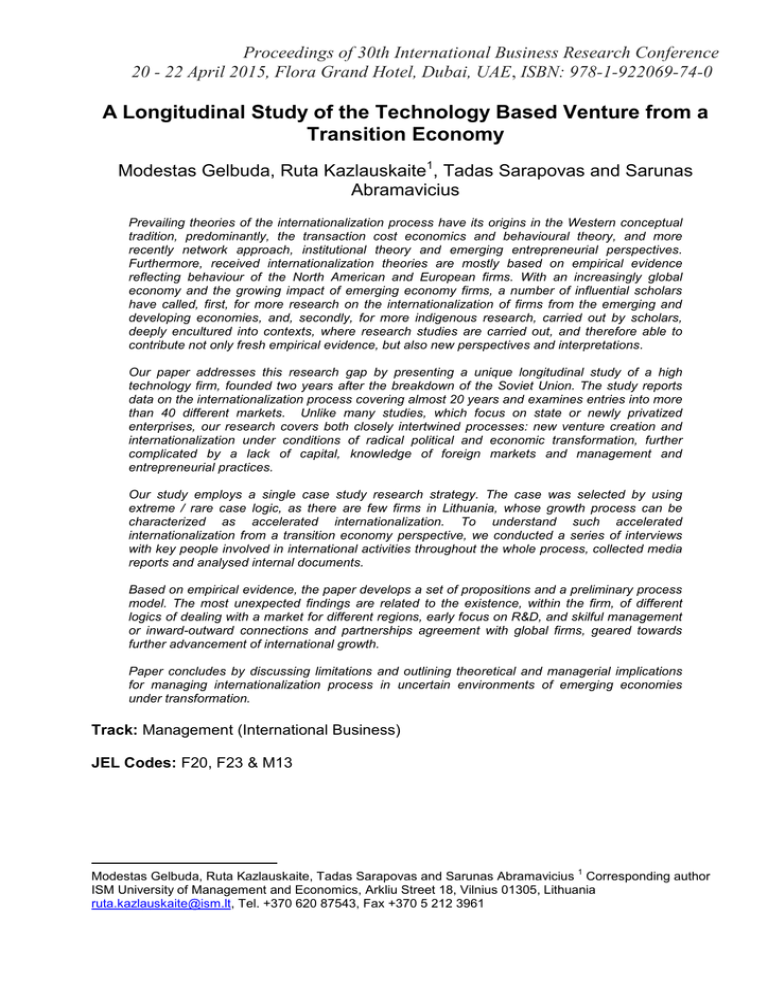
Proceedings of 30th International Business Research Conference 20 - 22 April 2015, Flora Grand Hotel, Dubai, UAE, ISBN: 978-1-922069-74-0 A Longitudinal Study of the Technology Based Venture from a Transition Economy Modestas Gelbuda, Ruta Kazlauskaite1, Tadas Sarapovas and Sarunas Abramavicius Prevailing theories of the internationalization process have its origins in the Western conceptual tradition, predominantly, the transaction cost economics and behavioural theory, and more recently network approach, institutional theory and emerging entrepreneurial perspectives. Furthermore, received internationalization theories are mostly based on empirical evidence reflecting behaviour of the North American and European firms. With an increasingly global economy and the growing impact of emerging economy firms, a number of influential scholars have called, first, for more research on the internationalization of firms from the emerging and developing economies, and, secondly, for more indigenous research, carried out by scholars, deeply encultured into contexts, where research studies are carried out, and therefore able to contribute not only fresh empirical evidence, but also new perspectives and interpretations. Our paper addresses this research gap by presenting a unique longitudinal study of a high technology firm, founded two years after the breakdown of the Soviet Union. The study reports data on the internationalization process covering almost 20 years and examines entries into more than 40 different markets. Unlike many studies, which focus on state or newly privatized enterprises, our research covers both closely intertwined processes: new venture creation and internationalization under conditions of radical political and economic transformation, further complicated by a lack of capital, knowledge of foreign markets and management and entrepreneurial practices. Our study employs a single case study research strategy. The case was selected by using extreme / rare case logic, as there are few firms in Lithuania, whose growth process can be characterized as accelerated internationalization. To understand such accelerated internationalization from a transition economy perspective, we conducted a series of interviews with key people involved in international activities throughout the whole process, collected media reports and analysed internal documents. Based on empirical evidence, the paper develops a set of propositions and a preliminary process model. The most unexpected findings are related to the existence, within the firm, of different logics of dealing with a market for different regions, early focus on R&D, and skilful management or inward-outward connections and partnerships agreement with global firms, geared towards further advancement of international growth. Paper concludes by discussing limitations and outlining theoretical and managerial implications for managing internationalization process in uncertain environments of emerging economies under transformation. Track: Management (International Business) JEL Codes: F20, F23 & M13 1 Modestas Gelbuda, Ruta Kazlauskaite, Tadas Sarapovas and Sarunas Abramavicius Corresponding author ISM University of Management and Economics, Arkliu Street 18, Vilnius 01305, Lithuania ruta.kazlauskaite@ism.lt, Tel. +370 620 87543, Fax +370 5 212 3961
